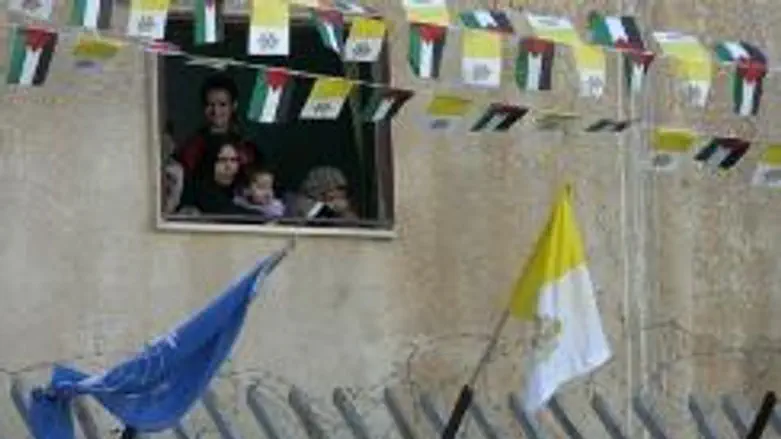
Arabs who left Israel in the 1948 are are beginning to blame Arab countries for leaving them stateless after promising a quick return to “Palestine.” "They [Arab leaders] said, 'A week, two weeks, approximately, and you'll return to Palestine,'" Sadek Mufid, formerly of Akko (Acre) and now living in Lebanon, recently told Palestinian Authority television.
His comments were translated by Palestinian Media Watch.
Saudi Arabia has led an Arab world demand that normalization of ties with Israel and the establishment of the PA as a state be conditioned on Israel's allowing the immigration of approximately five million Arabs. Most of them are descendants of Arabs who claim they used to live in Israel.
The United Nations has classified them as “refugees” and placed them in villages, known as “camps,” in Judea, Samaria and Gaza and Arab countries. The Arab designation of “refugees” is maintained today by the refusal of Arab countries to allow them citizenship, voting rights, or the ability to move into better housing, in order to preserve their “unique status.”
Mufid’s testimony represents a new trend of Arab leaders, writers and former Israeli Arab residents who have begun to speak out and openly blame the Arab leadership for the creation of their situation.
Mufid describes a mass departure to Lebanon from Israel, which led to the creation of "11 or 15 refugee camps." He does not place the blame on Israel. As Palestinian Media Watch has previously reported, other recent accounts also describe a deliberate exit from Israel under orders from Arab leaders, as the Israeli government has always claimed, which contradicts the Palestinian leadership's charge that the hundreds of thousands of Arabs who left in 1948 were expelled by Israel.
Mufid, who left the village of Dir Al-Qasi near Akko in 1948, told the PA TV's weekly program Returning, "We headed first from Dir al-Qasi to Rmaich [Lebanon], considering what they [Arab leaders] said at the time: 'By Allah, in a week or two, you will return to Palestine.'
“The Arab armies entered Palestine, along with the Arab Liberation Army. We left - we and those who fled with us - and we all headed for Lebanon. Some people came to Rmaich and others came to the villages on the border, such as Ein Ibl and also to Bnit Jibil. People scattered. And we have about 11 or 15 [refugee] camps in Lebanon."
In another PA television interview, an elderly Arab recalled how his family left Ein Kerem, in eastern Jerusalem. “The radio stations of the Arab regimes kept repeating to us. ‘Get away from the battle lines. It's a matter of 10 days or two weeks at the most, and we'll bring you back to Ein Kerem.’
“And we said to ourselves, 'That's a very long time. What is this? Two weeks? That's a lot!' That's what we thought [then]. And now 50 years have gone by."
Two years ago, Jordanian-based Aryan journalist Jawad Al Bashiti wrote in Al-Ayyam, “The reasons for the Palestinian Catastrophe [establishment of Israel and the refugee problem] are the same reasons that have produced and are still producing our catastrophes today... The first war between Arabs and Israel had started and the ‘Arab Salvation Army’ told the Palestinians, ‘We have come to you in order to liquidate the Zionists and their state. Leave your houses and villages, you will return to them in a few days safely. Leave them so we can fulfill our mission in the best way and so you won't be hurt.' It became clear already then, when it was too late, that the support of the Arab states [against Israel] was a big illusion.”